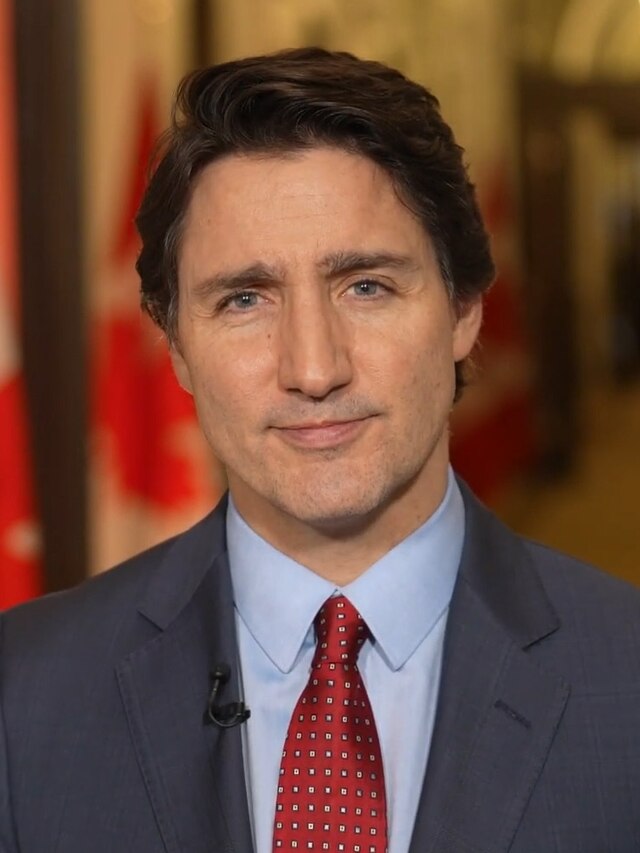Canadian Prime Minister Justin Trudeau Announces Intent to Resign Amid Internal Party Pressure and Economic Criticism
Published on: October 16, 2023
Canadian Prime Minister Justin Trudeau made a striking announcement on Monday, declaring his plans to step down as both party leader and prime minister. This decision comes in response to increasing internal pressure from members of his own Liberal Party, coupled with widespread criticism regarding his management of the economy and his often contentious relationship with President-elect Donald Trump.
Trudeau informed reporters, “I intend to resign as party leader and as Prime Minister after the party selects its next leader through a robust nationwide competitive process.” He further expressed his belief that “this country deserves a real choice in the next election,” implying that his internal struggles were undermining his capability to lead effectively.
Commitment to Canada and Recognition of Challenges
In his resignation statement, Trudeau struck an emotional chord, emphasizing his unwavering commitment to Canada. “As you all know, I am a fighter and not someone who backs away from a challenge, especially one as crucial as this,” he asserted. However, he acknowledged, “It has become apparent that I cannot be the one to carry the Liberal standard into the next election,” signaling a moment of profound self-reflection for a politician who has led the nation for nearly a decade.
Trudeau’s leadership has faced increasing scrutiny, especially in light of months of declining approval ratings. Canadian citizens have expressed dissatisfaction over surging living costs and inflation—issues that have placed immense pressure on his government. Despite the absence of formal mechanisms within the party for his ousting, rumors of a possible no-confidence vote loomed large, further complicating his leadership future ahead of the next elections scheduled for October 2025.
Internal Conflicts and Key Resignations
The pressure for Trudeau’s resignation significantly intensified after the unexpected departure of Finance Minister Chrystia Freeland, regarded as a close ally. In a pointed resignation letter, Freeland critiqued Trudeau’s economic policies while highlighting fears about Trump’s potential tariffs. “How Canada handles Trump’s tariff threats will define us for a generation,” she cautioned, urging for a more resolute stance against the incoming administration’s aggressive trade tactics.
Freeland’s resignation raised alarm bells within political circles, as her departure galvanized calls for accountability and a reevaluation of the party’s current direction. Following her exit, a wave of support from various Liberal Members of Parliament and opposition leaders echoed her sentiments, adding weight to the growing chorus for change.
The Liberal Party in Transition
Reacting swiftly to the upheaval, Trudeau appointed Dominic LeBlanc as the new finance minister, hoping to stabilize the party during this tumultuous time. Additionally, a special caucus meeting was convened to address party concerns, with Trudeau assuring members that he had “heard their concerns very clearly” and would actively reflect on his leadership role moving forward.
Trudeau’s decision to resign could present a pivotal opportunity for the Liberal Party to realign itself and regain public confidence ahead of upcoming elections. An interim prime minister is anticipated to lead the government until a new party leader is chosen, enabling the party to recalibrate and rejuvenate its strategies.
Speculation Surrounding Leadership Successors
As discussions about potential successors unfold, Dominic LeBlanc’s name has surfaced prominently. Recently, he engaged in discussions with Trump at Mar-a-Lago, stirring speculation about his ability to navigate the complexities of U.S.-Canada relations during this critical juncture.
LeBlanc’s experience and connections may prove beneficial as the Liberal Party seeks to position itself against a backdrop of shifting political dynamics. However, the road ahead remains uncertain, as various contenders vie for leadership positions and the public awaits clarity on the party’s new direction.
Trump’s Reaction and Future Implications
President-elect Donald Trump weighed in on Trudeau’s impending resignation through a post on TRUTHSocial, reiterating his critiques of Canada’s trade policies while entertaining an unorthodox solution. “Many people in Canada LOVE being the 51st State,” Trump declared, suggesting that merging with the United States could alleviate tariffs and bolster Canada’s security against foreign threats.
Trump’s provocative statements reflect a desire for a paradigm shift in U.S.-Canada relations, which may complicate the incoming Liberal leadership’s strategy in the face of such rhetoric. As Trudeau prepares to exit the political arena, his resignation not only signifies a shift within the Liberal Party but also foreshadows potential changes in Canada’s economic and diplomatic landscape.
